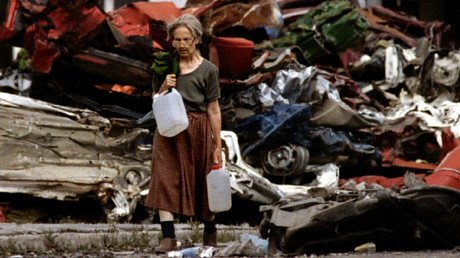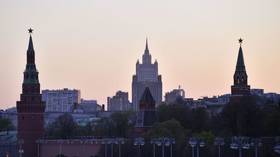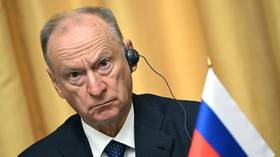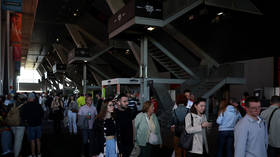‘West using Madaya, humanitarian crisis in Syria to undermine peace talks’ – Russian dep envoy to UN
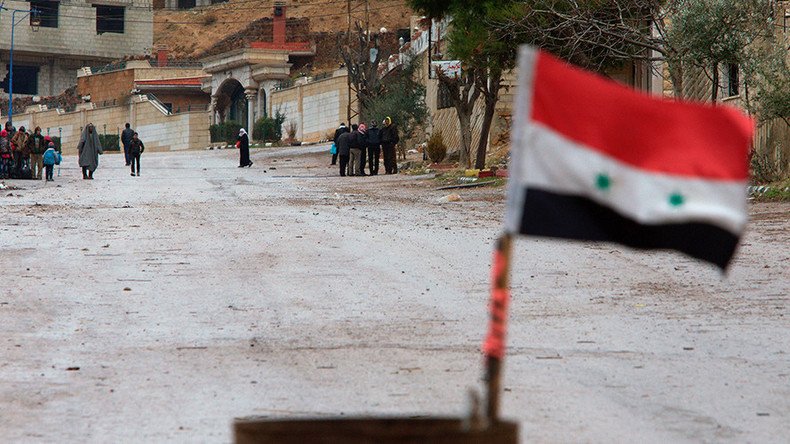
The West is attempting to derail the upcoming Syrian peace talks by using the humanitarian blockade of besieged cities as an “unscrupulous tactic,” Russia’s deputy ambassador to the UN told the Security Council.
“It looks like that, under the pretext of the deterioration of the situation in besieged cities, attempts are being made to undermine the launch of the inter-Syrian dialogue scheduled for January 25,” Vladimir Safronkov told an emergency meeting of the UN Security Council.
Britain, France and the US requested the urgent talks after reports from Madaya revealed the direness of the situation in the Syrian city of 42,000 following months of blockade.
‘Starvation as a weapon is a war crime’ UN head blasts warring sides in Syria https://t.co/0wetO1R5ltpic.twitter.com/8Vh1VW59Yb
— RT (@RT_com) January 15, 2016However, the sudden concern clearly exposes a “double standard,” Safronkov said, as the West is solely focused on Madaya – which is besieged by the Syrian Army – while it ignores situations in other territories that are blocked or held by anti-Assad militants.
“Much is being said about Madaya, but not a word about the villages of Nubul and Az-Zahra in the province of Aleppo. And we are talking about the fate of tens of thousands of people,” the deputy ambassador pointed out.
Questioning the sincerity of the Western powers, Safronkov accused them of making “unnecessary noise” after months of silence over the humanitarian catastrophe in Syria.
According to the UN, tens of thousands of Syrians have been cut off from food and essential supplies since at least October of 2015.
At the Security Council meeting, the Russian envoy asserted that the West is once again using its “unscrupulous tactics of politicizing humanitarian issues” on the international stage – a strategy it has repeatedly used in the past.
He stressed that such hyped up activity contravenes the recently adopted UN resolution on Syria, which established a framework for resolving the Syrian crisis.
“All this activity is contrary to Security Council resolution 2254, according to which the initiation of a dialogue should not be conditional on anything,” the Deputy Ambassador said. “Humanitarian issues should be part of inter-Syrian negotiations. Practice shows that the parties are able to agree when they are not disturbed.”
While lashing out at the West, Safronkov refrained from addressing any critics in particular. However, he did hint at the parties that could be potentially interested in undermining the eagerly awaited peace talks.
“These are clearly the powers who did not like the Vienna agreement and who cannot part with the disastrous plans of using military force to resolve the conflict in Syria,” he said, adding that those who supported the milestone deal could have been more “consistent” and “purposeful.”
The UN Security Council condemned the “barbaric” sieges in Syria on Friday, demanding immediate access “for life-saving humanitarian assistance.”
“We have requested, called for, insisted and demanded that the conflict be brought to an end, that civilians be protected from the relentless violence and access be granted for life-saving humanitarian assistance,” Kyung-Wha Kang, the Deputy Emergency Relief Coordinator, told the 15-member body during a briefing.
Around 400,000 people in 15 towns are trapped in areas besieged by the various parties engaged in the Syrian civil war, according to the UN.
On Monday, a UN humanitarian convoy carrying life-saving health and food supplies entered Madaya, where 23 people, including six children, starved to death in December.
‘Govt aid was sold off by traders’: RT reports from besieged Madaya (EXCLUSIVE) https://t.co/yPreliSHkfpic.twitter.com/krVpnYX5xm
— RT (@RT_com) January 12, 2016As residents told RT’s Murad Gazdiev, throughout those months, the rebels who took over the city repeatedly confiscated humanitarian aid and sold it off at higher prices.
“The prices rose so high… militants sold us humanitarian aid at inflated prices. A kilogram of rice cost $250,” a local resident told RT.
